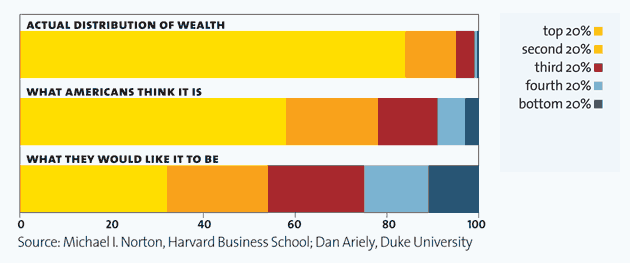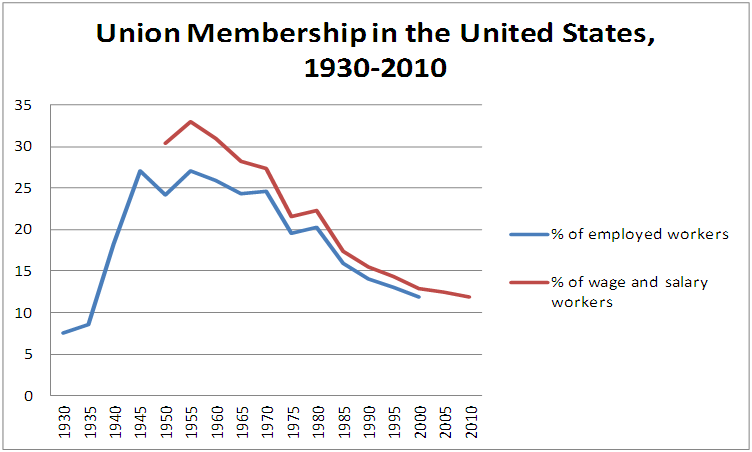Wealth disparity is off the charts. Corporate interests have pushed legislation across the United States to undermine labor unions. Union density has been on the decline for decades.
Increasingly, corporate contracts govern the lives of workers across the globe. It’s been predicted that, “By 2024, more than 80 percent of private-sector, non-union workers will have forced arbitration clauses blocking them from court.” Labor relations are being privatized.
Workers endure low wages, unequal pay based on gender, race and sexual orientation, and get fired for unjust cause.
Growing numbers of communities are stirring under these inequitable conditions, and realizing an underlying commonality: We live under a legal paradigm whereby corporations wield greater rights and privileges than real human beings.
Evidence of growing discontent and increased recognition of what is at stake can be seen through grassroots efforts such as Occupy Wall Street, 15 Now, Black Lives Matter and the adoption of local laws to pass new paid family and sick leave policies.
Corporate interests and their political stooges have been doing all they can to stop a growing, gritty labor movement from challenging their hegemony, whether that be through union-busting legislation or lawmaking to prohibit local communities from standing up for employees and against massive retail giants.
Challenging The Paradigm of Privatized Labor Relations
CELDF is working with communities to advance the rights of workers in such a way as to infuse public governance into the workplace.
Where labor unions are absent, employees are on their own to navigate corporate contracts with their boss. The contract governs their life. Rather than seeking redress from public institutions, contracts funnel worker complaints into a private court system (arbitration). The relationship is governed by a private contract, rather than any public law.
Our work challenging this paradigm of control has included advancing, in geographic jurisdictions, worker rights to establish the right to a living or family wage; the right to equal pay for equal work – regardless of race, gender, sexual orientation, or other identifying traits; the right to be protected from unjust firing; and the protection of those rights over the rights claimed by corporations.
This means fighting for our collective power to govern corporations.
Today, corporations frequently sue local communities that try to win such protections, claiming their “rights” are violated when communities stand up to legislation that has been carefully crafted to disempower workers (and communities’ power to stand up for workers). These corporate “rights” are upheld and protected by legislatures and the judiciary, while worker rights get sacrificed.

Changing this requires a people’s movement. And, as in the past, when workers are marginalized and subjected to inequitable and unjust economic and workplace conditions, there stirs the potential for new labor movements.
These movements are alive, but struggling. One particularly exciting tactic has been the rise of labor union “bargaining for the common good,” which has seen local unions work alongside broader social movements to leverage the power of the union to make gains that transcend for the whole community. Wildcat strikes have become more common, and energy has infused the movement.
Worker rights begins with each of us, in the places where we live – working to advance those rights from the grassroots.
Worker Rights: Some Analysis
The National Labor Relation Act of 1935 (also known as the Wagner Act) is held up as the golden shield in protection of the rights of workers in the U.S. The federal law was driven into place by economic, social, and political pressure culminating from decades of confrontation, some bloody and deadly, between major industrial powers and everyday railroad and factory workers. The law protected the right to unionization, collective bargaining, and organizing and negotiating tactics such as prolonged strikes.
However, in less than 12 years, that worker protection shield lost its luster when Congress adopted a substantial amendment to the National Labor Relation Act, called the Taft-Hartley Act. The Labor-Management Relations Act of 1947 (the official name for the Taft-Hartley Act) opens with this language:
[T]o promote the full flow of commerce, to prescribe the legitimate rights of both employees and employers in their relations affecting commerce, to provide orderly and peaceful procedures for preventing the interference by either with the legitimate rights of the other, to protect the rights of individual employees in their relations with labor organizations whose activities affect commerce, to define and proscribe practices on the part of labor and management which affect commerce and are inimical to the general welfare, and to protect the rights of the public in connection with labor disputes affecting commerce.
At the time, both unions and other labor advocates referred to the legislation as the “Slave Labor” bill. This reversal of fortune for the working class came not through bloodshed, but through the pressure of corporate lobbyists, who introduced 200 pieces of legislation over a 10-plus year period to undo the rights and protections established by the Wagner Act.
The Taft Hartley Act removed labor’s main weapon against unjust, inhumane working conditions: the strike. The Act also armed corporations with the First Amendment, which has been used ever since as an effective weapon to deter and stop unionization. In contrast, not only did employees – the people working – have no First Amendment rights in the workplace in 1947 – we do not have them today, either.
Through its pro-corporate provisions, the Taft-Hartley Act set the scene for what has transpired over the last five plus decades: the eroding of organized labor. While organized labor comprises 67% of the workforce in Sweden, it is only some 10% in the U.S. Even at its height in the 1950s, organized labor represented only 35% of the workforce.

In addition to neutering strike power and establishing free speech for corporations, the Taft-Hartley Act empowered state lawmakers to remove collective bargaining for public employees, severely crippled the ability of labor to raise dues for political purposes, and eliminated prevailing wages.
Worker Rights Today
Worker rights have been identified with unions, because unions have done the most to advance worker protections and codify them into law. Yet there are no constitutional rights of workers. In fact, the only reference to labor within the U.S. Constitution is associated with slavery. The protections that have been achieved are attenuated, rendered unenforceable, or revoked.
Labor, workers, employees, human resources – regardless of our name, we have always been viewed as an item of commerce under our system of law: to be protected from the worst abuse, in so many ways exploited, and in no way recognized as having inalienable rights.
“A living wage should be the right of all Americans.”
Martin Luther King, Jr.
Worker rights tomorrow: Spokane, Washington
CELDF is working with Envision Worker Rights in Spokane, Washington, to advance the rights of workers to a family wage when working for a larger employer, right to equal pay for equal work, and right to not be wrongfully terminated.
Spokane has partnered with CELDF and taken the first step in moving workers away from being a mere item of commerce – a form of defacto property – to recognizing that workers have constitutional rights. In proposing their Worker Bill of Rights to amend the Spokane City Charter – inserting core rights for workers – residents of Spokane are elevating the dignity and rights of all workers, and setting an example of what is possible in other communities across the U.S.
CELDF’s work in Spokane has generated the beginnings of similar rights-based efforts for workers in Colorado, Oregon, and Ohio, also supported by CELDF.
Learn more about Worker Rights: contact us at info@celdf.org, or 717-498-0054
